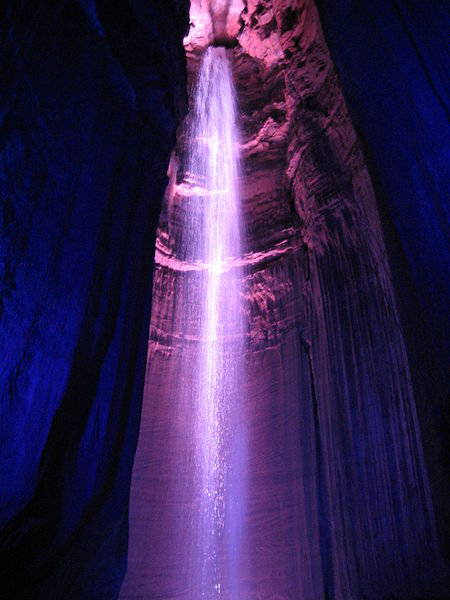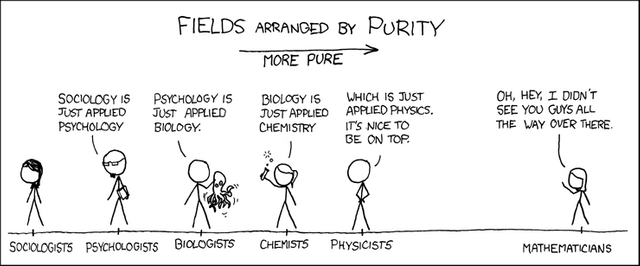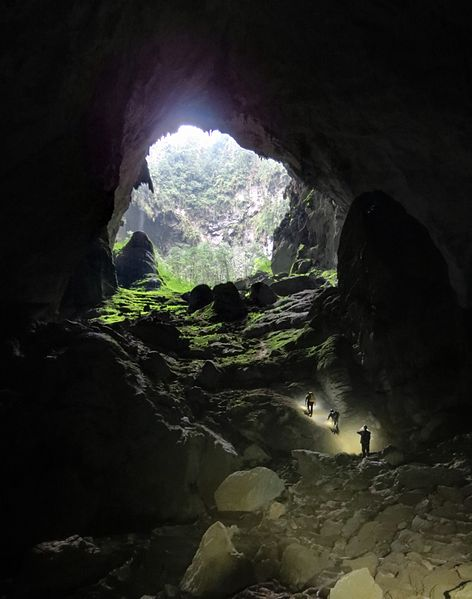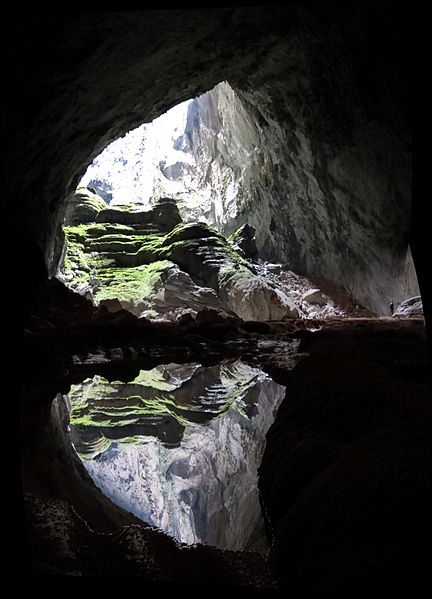Speleology Part 5: A Reflection of a Larger Whole
Part 1, Part 2, Part 3, Part 4
While this series on Speleology has definitely seemed a bit unfocused (not least due to my indecision about the title of the series at first, I've always had an end goal in mind for it- essentially, showing it off as a microcosm of geology.
I haven't even come close to a comprehensive discussion of speleology, or of the wonders of caves around the world. I haven't talked a bit about the huge amount of archaeological sites preserved inside caves, or their massive importance to many cultures. I've not talked about the bones of extinct animals thousands or even millions of years gone we've found in caves. I've not talked about the waterfall of Vrtiglavica, an underground waterfall over 400 meters tall (~1300 feet), making it huge even by the standards of the surface.

Ruby Falls, a 145 foot underground waterfall in Tennessee. [Image source]
Speleology is, in many ways, a complete science all on its own. There are speleologists scattered around the world (though, admittedly, mostly in karst regions.) It seems to be a bit audacious to just treat it as a subset of geology- and yet, it's not alone. Vulcanology is just as much a science if not more so than speleology. Same with seismology. Same with paleontology. Same with geophysics. Same with geochemistry. Same with glaciology, paleoclimatology, and planetary geology. All of these incredibly well fleshed out sciences are all built off of the same foundation. It gets a bit crowded at times.
Looking inwards a bit, speleology seems just as crowded. It includes geology, chemistry, biology, meteorology, physics, and cartography. It's an extremely cross-disciplinary science. Here's the thing, though: you find all of those in geology as well, not just through its sub-disciplines like speleology, but used for their own sake. Geology is, fundamentally, a synthesis science in the way that other sciences aren't.

XKCD #435: Purity [Image source]
As a quick exercise, try and place geology on the lineup in this XKCD comic. Geology is, in many ways, applied biology, but that clearly fails to sum it up. Geology is, in many ways, applied chemistry, but that clearly fails to sum it up as well. Geology is, in many ways, applied physics, but that fails to sum it up either. So where does it fit?
Well, it doesn't. When I say that geology is a synthesis science, this is what I mean. It cannot be understood on a scale of scientific purity, because it doesn't even strive for it. While other sciences attempt to isolate a series of related processes and learn about their results, geology takes a series of results- our planet- and figures out the processes from there.

The entrance to Son Doong cave in Vietnam, one of the largest caves in the world. [Image source]
It might be useful to think of each of the sciences as a fundamental way of looking at the universe. They're all encompassed under a greater umbrella, but each encourages a fundamental way of looking at the world. There's a lot of ways to divide them up even beyond the individual sciences. Stephen Jay Gould described one of the most useful divides, between the experimental/predictive sciences and the descriptive/interpretive sciences. The experimental/predictive sciences, like physics, are somewhat the stereotypical image of science- you make an experiment, predict what will happen, etc, etc. The descriptive/interpretive sciences, on the other hand, more resemble the naturalism of Humboldt and Darwin. You see something in nature, describe it, and try to interpret it. Or, to put it more succinctly- in the former, you run the experiment, in the latter, you're looking at the results of an experiment that's already been run.
Certain mental skills and outlooks are also encouraged by each of the sciences. Geology, as well as speleology and its other sapling sciences, has quite a few of these. Spatial thinking is essential in geology. You have to be able to puzzle out how outcrops and layers work in relation to one another. Geologists require a fairly strong and unique understanding of time. Most obviously, you need to be able to conceptualize and understand immense periods of time on the order of millions and billions of years- not a skill often demanded elsewhere. On top of that, however, you need to apply the aforementioned spatial reasoning to time. Geological time has to be understood spatially as well as merely chronologically. (That's a story for another day, however.)

The reflecting pool a little farther into Son Doong cave. [Image source]
Ultimately, that might be a pretty useful, though not exclusive, definition for a science- it's those common modes of thinking demanded by the discipline. Everything I've said here about geology applies to speleology- but what is important to keep in mind is that geology is not the study of rocks. Geo means Earth or world. Geology is the study of the world. And speleology isn't just a microcosm of geology. Caves are also a microcosm of the world, as far as life is concerned. There's a very, very good reason that Plato used a cave as part of his famous metaphor about reality and truth.
Bibliography:
https://en.wikipedia.org/wiki/Subterranean_waterfall
https://en.wikipedia.org/wiki/Speleology
https://en.wikipedia.org/wiki/Hang_S%C6%A1n_%C4%90o%C3%B2ng
Wonderful Life, by Stephen Jay Gould
Time's Arrow, Time's Cycle, by Stephen Jay Gould
Great post!
I have to visit the place in Tennessee!
Happy New Year 🎆
You too, and thanks!
I had not had time to read the previous parts, it is interesting these types of post. I will start reading the previous ones.
I hope you enjoy them!
I like this series followed
Thanks!
@originalworks
The @OriginalWorks bot has determined this post by @mountainwashere to be original material and upvoted it!
To call @OriginalWorks, simply reply to any post with @originalworks or !originalworks in your message!